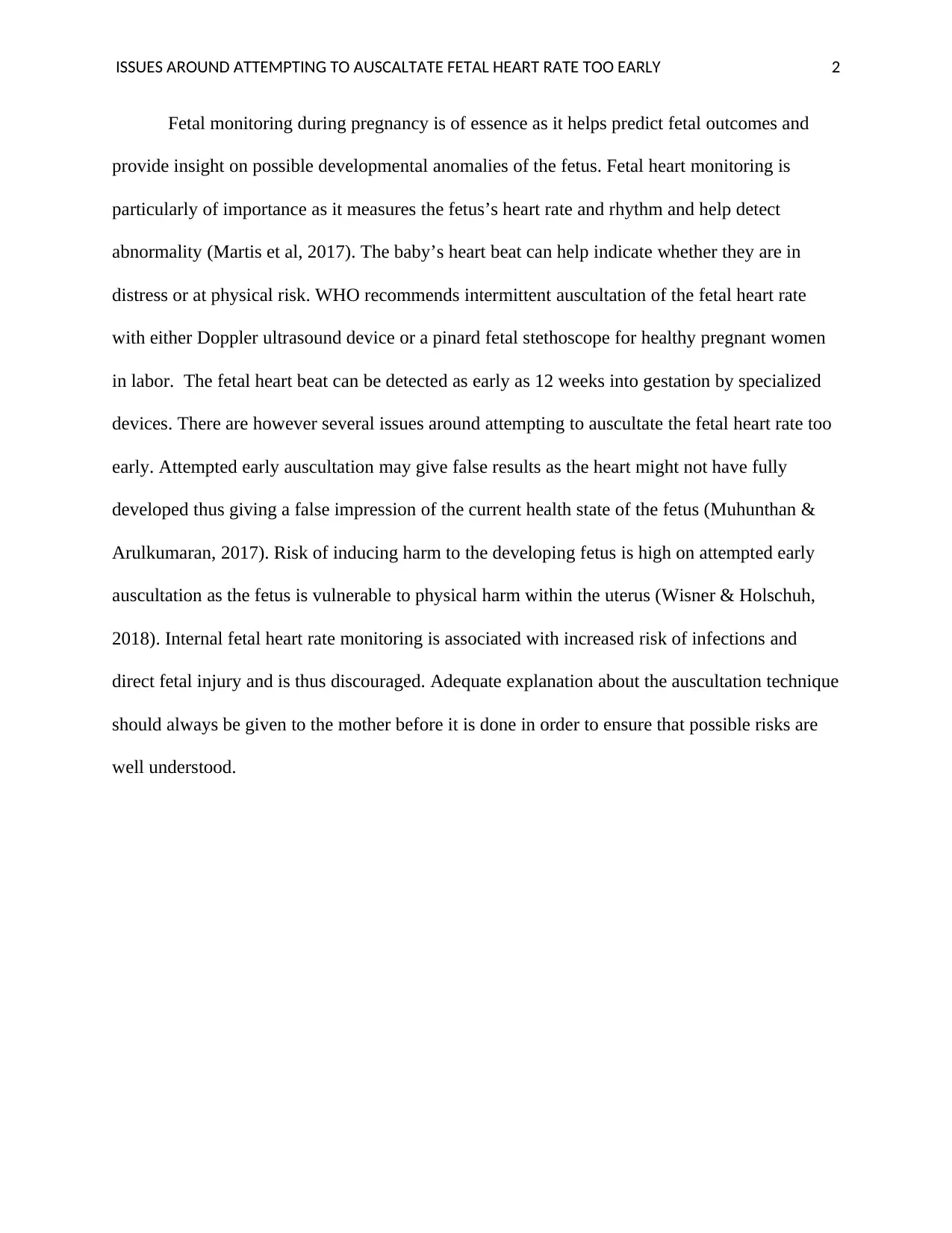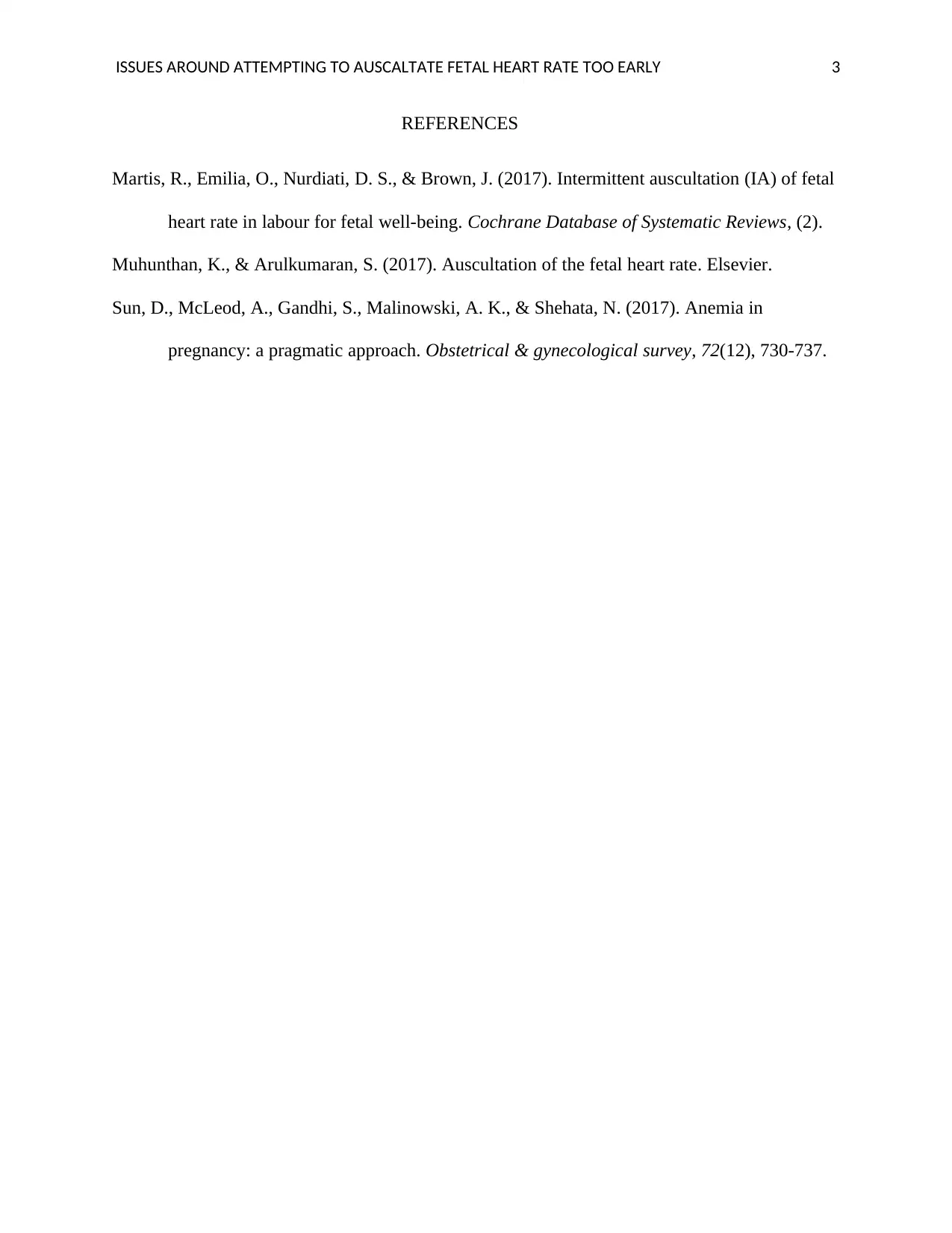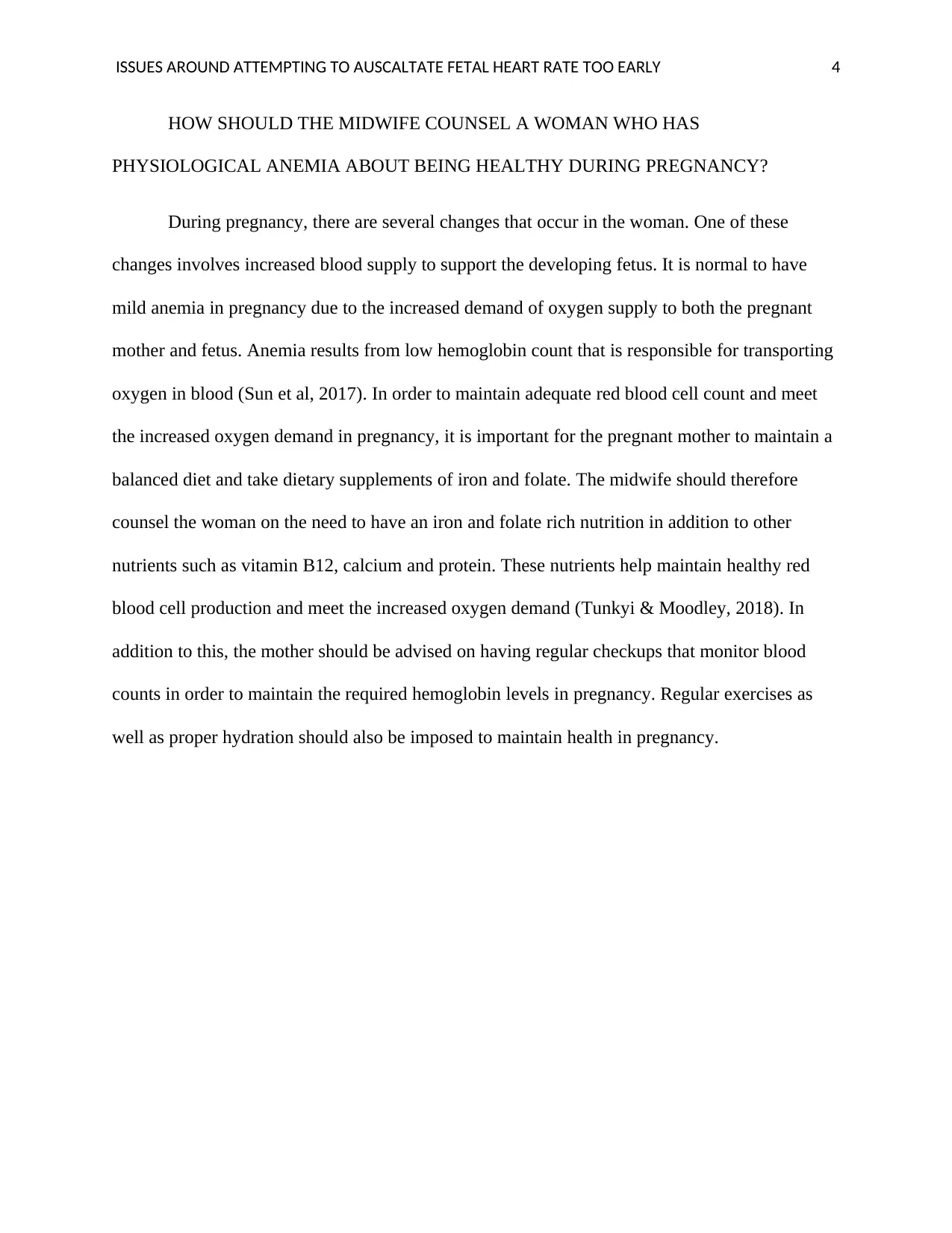Midwife's Role: Fetal Heart Rate & Anemia in Pregnant Women
VerifiedAdded on 2022/08/22
|5
|692
|22
Homework Assignment
AI Summary
This assignment addresses two key aspects of prenatal care: the issues associated with attempting to auscultate the fetal heart rate too early and how a midwife should counsel a woman experiencing physiological anemia during pregnancy. The first section discusses the potential for inaccurate results due to incomplete fetal development and the risks of physical harm to the fetus from early auscultation. It highlights the importance of explaining the auscultation technique to the mother to ensure informed consent. The second part focuses on the role of a midwife in guiding a woman with physiological anemia. It emphasizes the importance of a balanced diet rich in iron, folate, vitamin B12, calcium, and protein to support healthy red blood cell production and meet increased oxygen demands during pregnancy. The midwife should also advise regular checkups, exercise, and proper hydration to maintain optimal health. Both sections are supported by relevant research and provide practical insights into managing these critical aspects of pregnancy care.
1 out of 5










![[object Object]](/_next/static/media/star-bottom.7253800d.svg)